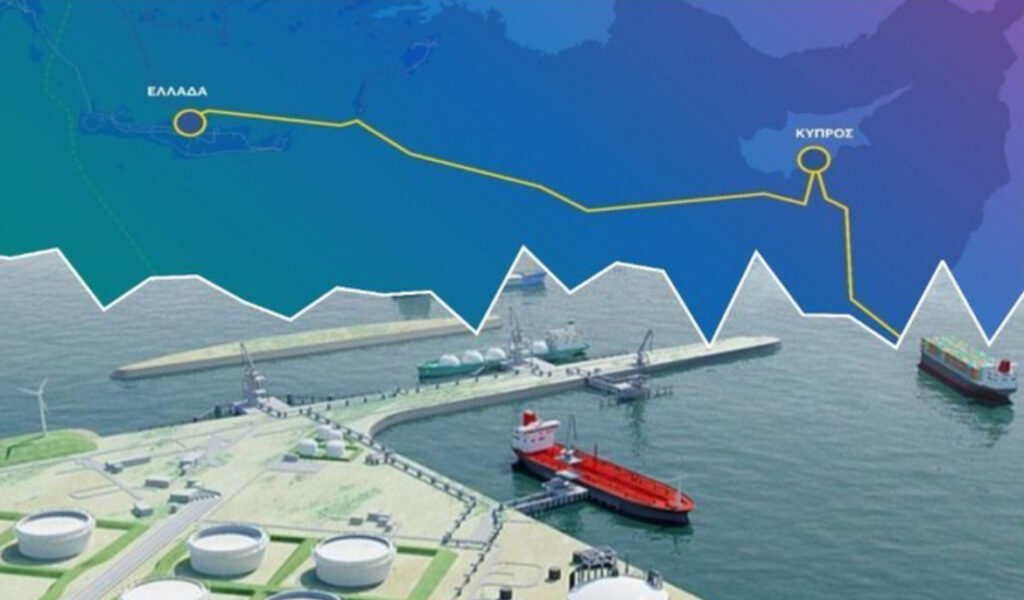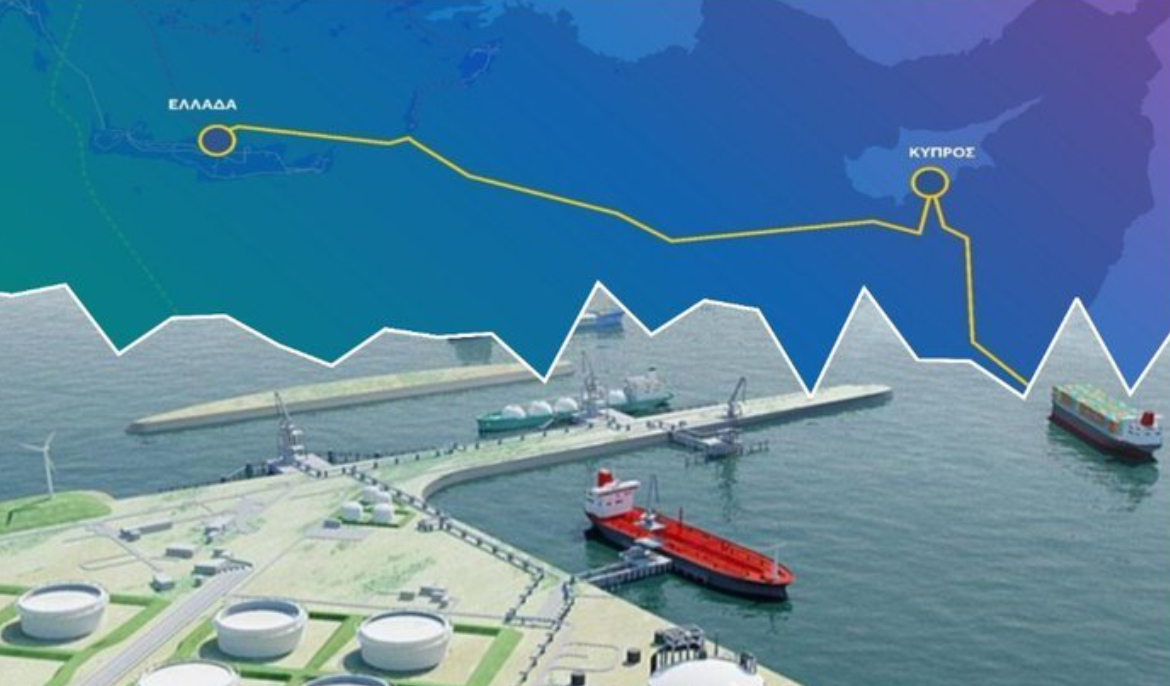The Natural Gas Infrastructure Company (ETYFA) will issue a tender to select the next destination of the ‘Prometheus’ “floating liquefied natural gas (LNG) unit, as stated by Energy Minister George Papanastasiou.
He also noted that the ship will remain in Malaysia for another two to three months to undergo necessary modifications while awaiting key components.
In response to reporters’ questions following his participation in the House Energy Committee, Papanastasiou explained that the ship had departed from Shanghai, where it had been stationed for a considerable period. It is currently undergoing inspections to assess its readiness as a floating regasification unit. Once this phase is complete, the ship will proceed to a terminal for certification.
“At this stage, inspections are ongoing, along with efforts to procure the components required for the ship to be deemed ready as a floating unit. The next step is its verification and certification at a terminal,” Papanastasiou said. He clarified that certification entails verifying that the ship is capable of producing specified quantities of gas, as per its design, at a terminal.
When asked if a terminal has been identified for this purpose, he said that it will be determined through the tender process currently being prepared by ETYFA. He added that the tender will include both the ship’s certification and its possible temporary use until the infrastructure at Vasiliko is ready.
“ETYFA is currently focused on preparing the ship as a floating regasification unit in the region of the Malacca Strait, specifically near Singapore and Malaysia, which are neighboring countries,” Papanastasiou noted.
Regarding the timeline and cost of the ship’s preparation in Malaysia, the Energy Minister mentioned that the vessel requires minimal changes, primarily involving two key components. However, he noted that these components have a long delivery lead time from manufacturers. Papanastasiou expressed optimism that the installation of these components—critical for the ship’s regasification function—would be completed within two-three months.
Concerning additional costs, he estimated that they would be significantly lower than initially projected. However, he awaits a detailed report from a specialised firm on the matter.
In response to a question about earlier statements regarding consultations with a Gulf country and Greece, Papanastasiou explained that before ETYFA decided to proceed with a tender, discussions had taken place with two specific parties. He highlighted the difficulty of relocating an already operational ship during the winter period in the northern hemisphere for certification purposes.
“Any country in our region that can certify the ship will be acceptable, provided the process follows competitive tendering to ensure compliance with required procedures,” he added.
Papanastasiou further explained that the ship is part of a project funded by the European Commission and through loans from two European banks. Therefore, close coordination with financiers is necessary to secure their approval of the selected country through the tender process.
When asked whether EU funds for the natural gas infrastructure project had been lost, he reassured that no funds were lost, noting that ongoing consultations with the Commission will soon yield results.
Opening of the competitive electricity market
In response to questions regarding whether delays in natural gas infrastructure or storage facilities might create distortions ahead of the opening of the competitive energy market, the Minister acknowledged that several factors have contributed to market distortions, including the prolonged transitional phase of market operation, which exceeded initial planning.
He reiterated that the government has decided to act on multiple fronts to reduce electricity costs for end consumers, namely: the import of liquefied natural gas (LNG), the use of renewable energy sources, and energy storage, for which applications are expected by the end of this month. He added that the third pillar—more long-term—is the establishment of electrical interconnections to prevent the system from remaining isolated from the rest of Europe. “Through these measures, distortions will be gradually eliminated, leading to lower electricity costs,” he said.
When asked if the opening of the competitive market alone would reduce electricity prices given the current delays, Papanastasiou said that this would become clear by July 2025 when the market is fully operational. He expressed hope that the trial period would provide some indications, especially towards its conclusion.
Awaiting further responses on the GSI Project
Regarding pending responses on the Great Sea Interconnector (GSI) project from the Greek Ministry of Energy, the Minister said that the letter sent on 3 December 2024 remains unanswered, and they are awaiting the Greek minister’s response.
Asked about the reasons for the delay, Papanastasiou noted that there is no specific issue, but the matters raised by the consulting firm employed by the Republic of Cyprus were numerous and complex. Therefore, more time is required as they entail significant changes in agreements or other arrangements proposed by the implementing body. He expressed hope that the response would support a sustainable path forward for Cyprus to become a shareholder.
Papanastasiou also noted that the project is progressing as planned and that the pending response from the Greek Ministry has not halted the project. However, he emphasised the importance of resolving this issue for the final decision by the Republic of Cyprus, which will follow the anticipated responses.
(Source: CNA)



